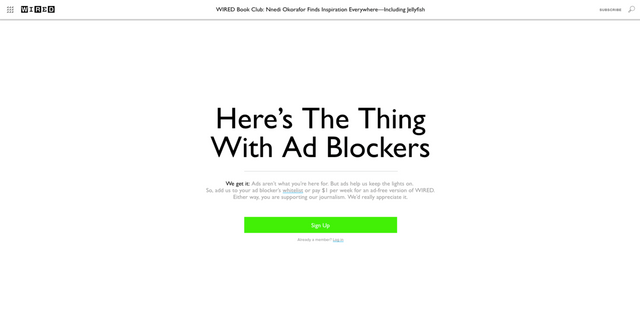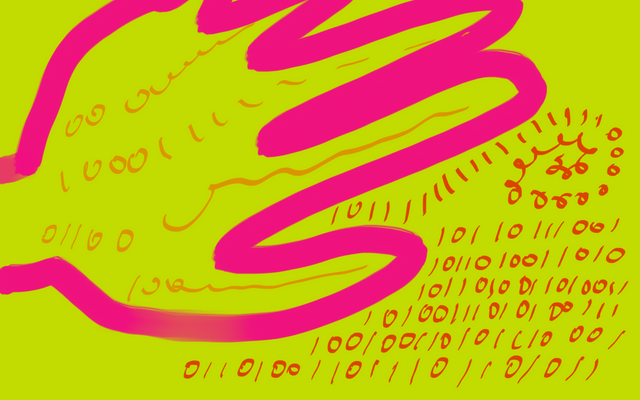The first rule of anonymity is don’t talk about... anything
The first rule of anonymity is don’t talk about... anything.
Well, not anything to do with you, who you are, where, what, when, and why. 😅
Surely a method better than hiding your tracks is to not make any tracks to begin with. Prevention is better than the cure.
You are tracked
It is well known that much of what you do online is tracked. Of course it's mainly for advertising. And by the business models of most of the biggest companies, this advertising revenue is not just important, it is indispensable life blood. Anything that prevents tracking puts their viability in jeopardy.
You can use several techniques to disrupt tracking, and these work to variable degrees. By tightening up privacy settings, using different email address, aliases and fake names and even dis/misinformation. It's hard to do this though and it requires that elusive "change in browsing habits" which is prominently marked as the first thing one must do to be more anonymous when using the famous web browser Tor, but which is hard for any normal person to bother with.
Due to revenue loss, some websites will demand, other ask nicely, for you to turn off your ad blocker. An ad blocker is really an anti-tracking device and it prevents advertisers from figuring out who you are, and what to advertise to you.
Wired is one such website, and more and more are starting to do this. However, you can see that Wired and some others are offering an alternative - direct payment. While inconvenient, I think this is a great step in the right direction. If only they'd accept Steem Dollars directly... 😂
What is gathered and why?
Websites gather small bits of information about your habits which in themselves are not very useful or interesting. Maybe, your age, or how quickly you stayed on a particular webpage, or a list of search terms. No actual person is looking at a graph of how long you read health diagnosis articles versus how long you watch videos of crows snowboarding. But that information is used, believe it or not, albeit as a small piece of a large puzzle.
It’s truly surprising just how much information it is possible to gather about you when browsing your usual websites. The is really well shown by ClickClickClick.Click, which is also hilariously funny. A great, more serious look into this is What Every Browser Knows About You, which actually shows you it can get:
- Your location
- Your computer system, including operating system, hardware, charging state
- What browser your using and what plugins you have. Note that plugins contribute a lot to your identity "fingerprint"
- Your connection details, including ip and connection speed
- What social media networks you're on
- And some other stuff
When explained to us, we are often misled into thinking there's an straightforward logic to how this information is analysed, so that if you look at a lot of toothpaste commercials you must have bad teeth, and that's some of the picture. But if there's enough of it, the information is can be analysed as arbitrary data points and could guess with a high degree of certainty that you are around 45 years of age and based in Canada. Predictions can be made about what you're likely to do, not because the data itself is very revealing, but because of patterns of behaviour of which you are mostly unconscious. The more data out there, the more likely the predictions are true. This is not science fiction, it's happening for real.
The fact that you have websites you regularly visit is in fact what enables patterns to emerge for analysis. Because we are creatures of habit, it is simple to infer facts about us from disparate data. One of the really interesting and intrusive inferences then is when our habits change, something is up. This used by large scale surveillance organisations to look for suspicious behaviour (which can often be defined, poorly, as irregular behaviour), to Google and Amazon guessing that you've had a recent loss or are having a baby.
One has to concede that this kind of capability is scary because you can be sure that persons of interest are chosen based on their online habits, none of which are in and of themselves noteworthy. For example, the NSA apparently look for (or used to look for) social media posts simply based on a few hundred keywords. You could tweet this
Sick of having Chinese pork for dinner. I'm ordering Subway. Should put a stop to my explosive diarrhoea.
and get noticed. This was generated at Vice's Motherboard website.
Your participation is voluntary
Paranoid much? Not really. All this just goes to show the power of the analysis systems. But remember that the power is given to them by you, through your free, honest and open usage. Freely, because you do so of your own free will, information is not coerced out of you. Honest, because the system are designed to only work well if you are consistent, which is almost the same as honest. And open, because you are encouraged to hold nothing back, because you are told that you are in control.
For me, the relevant issue is data ownership. Read the terms and conditions, the privacy policy. You are giving away your information. The postal system, the village bulletin board, they now own your messages, pictures, videos - and the behavioural information about how you use the system. You allow this information to be stockpiled, shared with anyone (because what really defines a "trusted third party" anyway?) and even sold, from when you send it until the end of time.
And once enough of your behaviour is known, you can be de-anonymised quickly by gathering a little more of the same useless information. The words you type could conceivably be as good an indicator of identity as a fingerprint. Your idiom, common mistakes, preference in punctuation, use of emojis. It’s all there. And will be for a long, long time. The problem is that this information can be tied to who you really are, by your photos, addresses, or even other, more sensitive, more personal information.
What can you do? Disengage.
An alternative could be to add noise to your data and put the tracking metrics on the wrong scent. Either manually or preferably with an automated process, make searches, visit websites, event make posts to social media, take and post random photos. You could go that far and there are some browser plugins available to facilitate that, but that kind of digital multiple personality syndrome is likely go against the use the system. To be sure, there’s something noble in the simple act of messing up all those well intentioned algorithms that paint the picture of you, your digital identity. But is it worth it? And easy to integrate into your life? For most of us, the answer is no.
Digital Hermitism
It seems like I’m advocating what you could call digital hermitism, and I am to a degree.
Where you do post, using separate identities for each service is doable with just a little set-up per service. And once done, it stays done. Just make sure to do things differently on each service, but that shouldn’t be too hard. Let you creativity flow and be all those different people you are in real life.
When I left Facebook, Twitter and the rest of the most popular social media platforms, the compulsion to share my thoughts, interesting articles, funny thoughts, things that happened to me and photos never quite left. I still find myself wanting to share. And to share in this context, in most contexts on social media, is in fact to broadcast. In other words, to send indiscriminately to all who can see you, whether it be followers or not, people today, tomorrow, or spooks over your shoulder.
Indeed, this article is an expression of that very desire! But some things are worth broadcasting, and I'd a reasoned argument is one such thing. From what I can see, that's a core strength of Steemit, and a huge attraction for me. Instead of just sharing interesting articles, I'm trying to write them. True, what I write is by synthesis of what I read, but I salt it with my own perspective, my own way of explaining and, yes, my own bias.
Change your mind, change your habits
In general though, it is this share / broadcast impulse which you have to get used to ignoring, and supplant it with direct messaging to the person or group of people you think might like be interested. I don’t believe we need our personal messages, pictures, and so on, hanging around indefinitely, essentially adding to a definition of who you are seen to be. Admit it, you’ve looked through the old posts of new people you get interested in - the dreaded Instagram "like" on a two year old post, notifying the account holder that you are a stalker.
You’ll be surprised how uncomfortable the silence is initially. And when you’re sitting on the toilet and reach for your phone to look at Facebook, you’ll feel isolated. Then, after a while, you’ll start having other thoughts and maybe read something you actually wanted to read, a saved article or book, instead of getting FOMO from your friends latest holiday snaps.
Oh, and Amazon won’t know what ads to show you. How much freer will you be? Not much. But it’s a step in the right direction, as a citizen of the world, and as a person with limited time and attention.
Postscript: Yes this is highly ironic, an article full of words about stopping the saying of words 😶 🙄



This post has been ranked within the top 80 most undervalued posts in the first half of Feb 02. We estimate that this post is undervalued by $5.65 as compared to a scenario in which every voter had an equal say.
See the full rankings and details in The Daily Tribune: Feb 02 - Part I. You can also read about some of our methodology, data analysis and technical details in our initial post.
If you are the author and would prefer not to receive these comments, simply reply "Stop" to this comment.
Bravo personz, look how the pizzagate reseaecher who was threatened by James Alefantis. It would be hard for anyone to find a photo of your mother and girl friend and say I 'wouldnt want anything to happen to them, would you?'